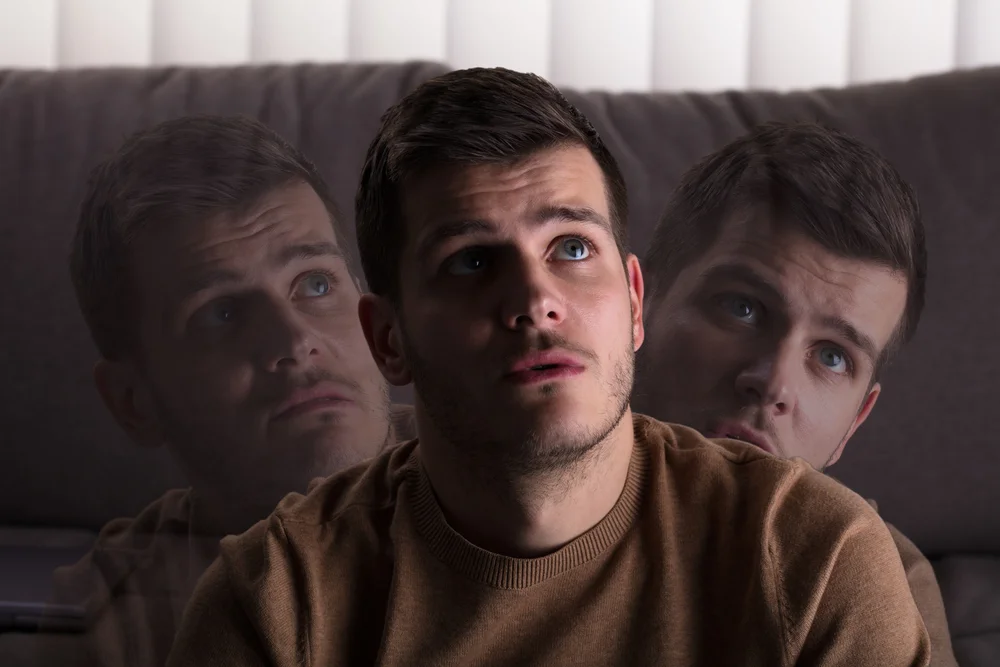Announcement
This article will help clarify questions like “Is generalized anxiety disorder neurodivergent,” explaining the relationship between anxiety and neurodivergence and offering a comprehensive understanding of where those two conditions intersect and how that can affect the mental health support and treatment you receive.
Introduction
If you are asking questions like “Is anxiety disorder neurodivergent,” you are not alone. However, figuring out whether anxiety is neurodivergent is somewhat complicated.
If you live with any type of anxiety, you might feel like you interpret information differently from the people around you or that you don’t communicate the same way. So now you are wondering, “Is anxiety neurodivergent?”

What is neurodivergence?
Neurodivergence refers to any individual whose brain doesn’t function in a standard or common fashion. There are plenty of ways where you might think differently than someone else just because of your upbringing or your belief system, but when your different thinking is the result of abnormal or uncommon development in your brain or brain function, it’s considered neurodivergence.
Common symptoms of neurodivergence:
- Problems with speech
- Social communication issues
- Learning difficulties, like following spoken language, reading, or staying focused
- Unusual responses to crowds (not because of another condition), temperature, sound, pressure, or light
- An inability to change
- Usual physical behaviors like shouting, blurting, or physical tics
Neurodivergence can manifest in several ways, with symptoms that are mild such that you don’t even notice and symptoms that are much more obvious such that you behave much differently in society than everyone else.
Common examples of neurodivergent conditions
There are several forms of common neurodivergent conditions, such as:
- ADHD
- Autism
- Dyslexia
- Epilepsy
- Down syndrome
- Tourette’s
- Synesthesia
- Dyspraxia
- OCD
- Anxiety
- Depression
- Borderline personality disorder
- Bipolar disorder
Autism
Anyone on the autism spectrum is considered neurodivergent. Any subtype of autism also falls under this category. Autism comes with challenges such as:
- Repetitive behaviors
- Problems speaking
- Challenges with social skills
- Issues with writing
Individuals struggling with autism generally process senses much differently than everyone else, they move and communicate differently, and they don’t socialize in standard, acceptable ways.
ADHD
Individuals with attention deficit hyperactivity disorder also have dysfunction in their brains, specifically executive function. This can cause problems managing:
- Behaviors
- Emotions
- Thoughts
- Attention
Individuals struggling with ADHD might be very sensitive to other people, show inappropriate behavior if they experience an emotion, appear to be disinterested a lot of the time, and think much differently than everyone else.

Dyslexia
Dyslexia causes cognitive issues with speaking, writing, and reading. This form of neurodivergence can cause people to:
- Confuse letters
- Struggle to acquire new vocabulary
- Experience problems with pronunciation
- Have issues organizing words and sentences
Individuals with dyslexia might have good spatial awareness and excel when it comes to visual processing but function significantly differently than the rest of society when it comes to reading and writing.
Anxiety and neurodivergence
Some people with severe anxiety, “Is generalized anxiety disorder neurodivergent” because they feel much different from everyone else, and they might have social challenges or problems speaking or responding the way everyone else does.
What is anxiety?
Anxiety is a normal part of life, something that everyone feels from time to time. Anxiety can be good or bad. Small anxiety or stress can encourage you to get out of bed and go to work on time or perform well when you are giving a presentation.
Anxiety about sleep or health can encourage you to exercise and use good sleep hygiene. This type of anxiety, even when it’s mild but bad, is something that can be controlled with stress management techniques like exercise or meditation.
The problem exists when individuals suffer from anxiety that significantly interferes with daily function and persists despite no direct cause or correlation.
There are several types of anxiety disorders, including:
- Generalized anxiety disorder
- Social anxiety
- Phobias
- Separation anxiety
If you struggle with symptoms of irritability, feelings of dread, panic, restlessness, sweating, or other forms of nervousness, you might wonder, “Is anxiety neurodivergent” because understanding whether you are struggling with a neurodivergent anxiety disorder might help you better understand causes, symptoms, and potential treatment options.
The intersection between anxiety and neurodivergence
It’s important to understand that while there is an intersection between anxiety experiences in someone who is already neurodivergent, it is much less likely that someone experiencing mild anxiety disorders is classified as neurodivergent. Moreover, being classified as neurodivergent does not, by itself, provide a better understanding of potential treatment or help you control the symptoms.
If you are experiencing anxiety, working with a mental health professional can help you determine whether:
- That anxiety is a symptom of other neurodivergent conditions like ADHD or dyslexia, or
- That anxiety is from an anxiety disorder that should be treated with medication and/or therapy.
What’s more common is an individual who is already considered neurodivergent, already struggles with something like autism or ADHD, and then experiences symptoms of anxiety.
For example, social anxiety is not considered neurodivergent, so an individual who is simply afraid of being embarrassed or ridiculed in public is experiencing some of the same symptoms that most people have but on a slightly bigger scale.
However someone who is already autistic might have significant issues in social situations and experience anxiety as a result, and in this case, the anxiety serves as a symptom of their neurodivergent condition, not the other way around.

Is anxiety neurodivergent?
Neurodivergent anxiety disorder can happen. Neurodivergence can apply to chronic mental health conditions, especially those that don’t get treated with traditional therapy and medication. If you are worried about anxiety and neurodivergence, it’s important that you understand your individual experiences rather than trying to avoid a broad generalization or self-diagnosis.
Summing Up
There exists a small intersection between anxiety and neurodivergence, but it’s important that you avoid labeling yourself as having neurodivergent anxiety even if you are asking questions like “Is anxiety disorder neurodivergent” because only mental health professionals can give you a formal diagnosis and help you receive the treatment that might work best for your circumstances